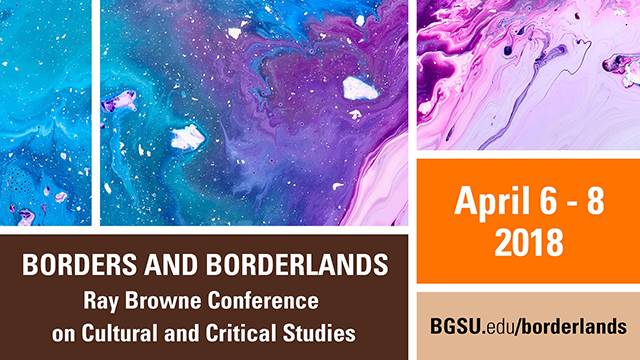
Concurrent Panel Session Four
The Mexican-United States Border: A Transnational Space Where Women’s Rights are Forgotten
Start Date
7-4-2018 10:30 AM
End Date
7-4-2018 11:20 AM
Abstract
This paper uses films to discuss the social conditions, discrimination and violence against the women living along the Mexican-American border. Borders are a societal construct that create a unique space that is a vacuum that is neither quite part of a state or stateless. Borders have the ability to generate cultural production on both sides. Over 14 million people live and work in the Mexican borderland with the United States. These people may share nationalities, languages, and cultures, making it a unique multicultural zone. It is also a space where hierarchical and hegemonic power exists and operates by omission and complicity. The historical, social and economic factors that have led to the current social conditions will be discussed to understand how they predetermine women’s existence in the borderland. This critical discourse analysis frames the discussion about the dichotomies that characterize the lives of women on the border. The cross-examination of these dichotomies uncovers the circumstances that perpetrate violence, erasure and discrimination against women in the borderland. Fictional and non-fictional films highlight the multiple perspectives and conditions of the women. The purpose of the study is to create dialogue about the transnational influences and patriarchal aspects of culture to facilitate discussions that will motivate the necessary social changes to improve women’s lives in the borderland.
Keywords
border, cultural production, multicultural, social conditions, women, films, social change, transnational
The Mexican-United States Border: A Transnational Space Where Women’s Rights are Forgotten
This paper uses films to discuss the social conditions, discrimination and violence against the women living along the Mexican-American border. Borders are a societal construct that create a unique space that is a vacuum that is neither quite part of a state or stateless. Borders have the ability to generate cultural production on both sides. Over 14 million people live and work in the Mexican borderland with the United States. These people may share nationalities, languages, and cultures, making it a unique multicultural zone. It is also a space where hierarchical and hegemonic power exists and operates by omission and complicity. The historical, social and economic factors that have led to the current social conditions will be discussed to understand how they predetermine women’s existence in the borderland. This critical discourse analysis frames the discussion about the dichotomies that characterize the lives of women on the border. The cross-examination of these dichotomies uncovers the circumstances that perpetrate violence, erasure and discrimination against women in the borderland. Fictional and non-fictional films highlight the multiple perspectives and conditions of the women. The purpose of the study is to create dialogue about the transnational influences and patriarchal aspects of culture to facilitate discussions that will motivate the necessary social changes to improve women’s lives in the borderland.

